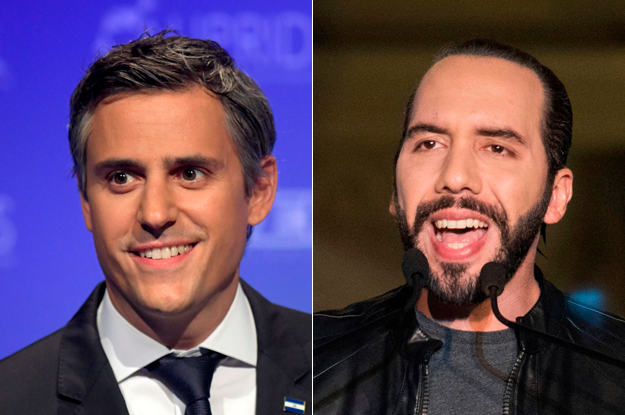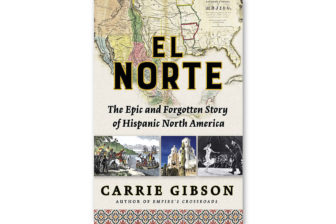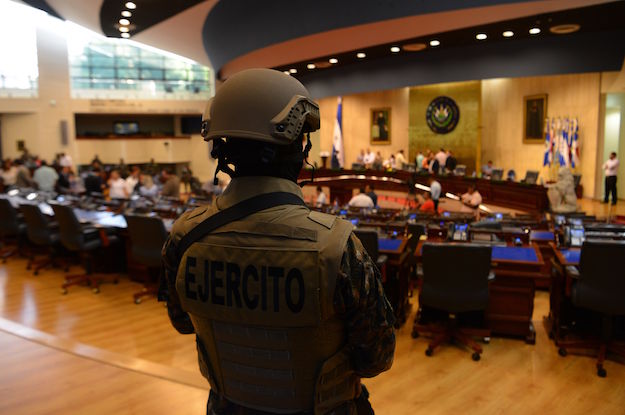This weekend some five million Salvadorans will head to the polls to elect a new president. AQ takes a closer look at the contenders in what could be a historic election. Nayib Bukele, the 37-year-old former mayor of San Salvador, may break the two-party hold on the presidency for the past three decades. Bukele is leading in the polls, followed by Carlos Calleja (ARENA) and Hugo Martínez (FMLN), who hail from traditional political parties. Rounding out the candidates is Josué Alvarado, who is polling at a distant 1 percent but represents El Salvador’s significant diaspora community.
Election Date: February 3
Format: Two rounds. If no candidate receives more than 50 percent of votes in the first round, the two leading candidates will proceed to a run-off on March 10.
Nayib Bukele, 37, Former mayor of San Salvador
Grand Alliance for National Unity (GANA)
“I don’t talk about left or right anymore, this is outdated in the modern era.”
How he got here: The scion of a prominent business family, Bukele began his political career as the mayor of the small town of Nuevo Cuscatlán (2012-2015) and later served as the mayor of the capital, San Salvador (2015-2018). Bukele was a member of the leftist FMLN, but was expelled in 2017. He tried to organize his own party but wasn’t able to have it recognized in time for the election. Bukele is running as a candidate for GANA, a conservative party founded in 2010 as an offshoot of the right-wing Nationalist Republican Alliance (ARENA).
Why he might win: A social media star without clear ideological ties, Bukele appeals to a sector of the Salvadoran electorate that is disillusioned by traditional party politics. The current system, dominated by ARENA and the FMLN, is associated with corruption, inefficacy and a sluggish economy. Bukele is leading in the polls, but it is unclear if he can win outright in the first round.
Why he might lose: Bukele has received criticism for his stances, such as refusing to take questions from the media, saying his opponents may steal the election from him, and declining to appear in debates. While his three opponents debated for a second time, Bukele released his government program on Facebook Live. Observers pointed out multiple instances of plagiarism in the platform.
Who supports him: The self-styled candidate of change has 1.4 million Facebook followers, a testament to his aggressive social media strategy. He has a large support base among El Salvador’s youth, and his outsider status is attractive to voters frustrated with ARENA and the FMLN.
What he would do: Bukele has promised to create an International Commission Against Impunity in El Salvador in the mold of the U.N.-backed CICIG anti-corruption body in Guatemala. He also promised to develop the country’s Pacific coast with a new train line, airport and a port expansion, but has not explained how he would fund these projects.
Carlos Calleja, 42, Businessman
Nationalist Republican Alliance (ARENA)
“The presidency has been the nest of corruption in El Salvador.”
How he got here: Calleja is a U.S.-educated businessman whose family runs the country’s largest chain of supermarkets. He manages his family’s charity, Fundación Calleja, and also has a role within the company as a vice president. Calleja joined ARENA in 2013 but has never held public office. He is running under a conservative four-party coalition, Alliance for a New Country.
Why he might win: Calleja, who is polling second behind Bukele, stands to benefit from the momentum that ARENA built with its success in the March 2018 municipal and legislative elections. ARENA holds 37 out of 84 seats in Congress, and ARENA mayors run nine of El Salvador’s 14 largest cities, including the capital. The party has been the main opposition party for the past ten years, and, like Bukele, Calleja will benefit from the current FMLN government’s low approval ratings.
Why he might lose: Calleja is a political novice with less name recognition than Bukele, and the two previous ARENA presidents, who governed from 1989 to 2009, have gone through major corruption scandals. In September 2018, Antonio Saca, who was president from 2004 to 2009, received a ten-year prison sentence for laundering $300 million in public funds. At the time of his death in 2016, former president Francisco Flores was under investigation for diverting $15 million the Taiwanese government had donated for disaster relief following a 2001 earthquake. Flores allegedly took $5 million for himself and funneled $10 million to an ARENA account.
Who supports him: Calleja enjoys the support of El Salvador’s conservatives and the private sector. He also received the endorsement of El Salvador’s evangelical community, a growing population in El Salvador.
What he would do: Calleja has put forth a program based on promoting security and spurring economic growth. He aims to create 300,000 jobs over the next five years by developing tourism, agriculture and technology sectors and improving the ease of doing business in El Salvador. Calleja has also stated that he would prioritize El Salvador’s relationship with the U.S.
Hugo Martínez, 51, Former foreign minister
Farabundo Martí National Liberation Front (FMLN)
“I have the independence to recognize the mistakes that have been made, but I bow to the interests of the people, not to the interests of the party.”
How he got here: Martínez has been a member of the FMLN since its founding in 1992, following its transformation from a guerilla group during El Salvador’s armed conflict into a political party. After the peace accords were signed, Martínez spent two years as the FMLN’s first youth coordinator. He served in Congress and later became a campaign advisor to Mauricio Funes, El Salvador’s president from 2009 to 2014. Martínez was Foreign Minister under Funes as well as under Sánchez Cerén.
Why he might win: He is an experienced politician who has negotiated with the U.S. over the Temporary Protected Status (TPS) program for Salvadorans.
Why he might lose: Martínez’s ties with the two previous FMLN presidents may taint him by association. Funes embezzled and laundered $351 million from the state, then fled to Nicaragua. Sánchez Cerén is deeply unpopular, with only a 26 percent approval rating. The FMLN suffered a significant defeat in the March 2018 elections, indicating voters’ dissatisfaction with the party.
Who supports him: Martínez, who is polling third behind Bukele and Calleja, could hope to receive support from leftist voters who have not migrated to the Bukele camp. While the FMLN has lost popularity, Martínez has promised not to toe the party line on all issues.
What he would do: He has promised to continue social programs as well as reduce crime by strengthening the Safe El Salvador Plan begun under Sánchez Cerén by deploying the national police across the country. Martínez also plans to focus on education and development in rural areas.
Josué Alvarado, 62, Businessman
Let’s Go (VAMOS)
“Political parties have abandoned the diaspora.”
How he got here: Alvarado is a political newcomer who came back to El Salvador after spending 30 years in the U.S. He studied agronomy in Nicaragua and survived two murder attempts upon his return to El Salvador, then immigrated illegally to the U.S. in the 1980s. In 1986, he founded Rio Grande Food Products in Maryland. Alvarado entered politics in 2015 with an unsuccessful run for Congress as part of the Christian Democratic Party. He later joined the centrist Vamos party soon after its founding in November 2017.
Why he might win: Alvarado has presented himself as the voice of the Salvadoran diaspora and describes Vamos as “the first transnational party”. His party is independent and lacks the history of corruption charges that has plagued ARENA and the FMLN.
Why he might lose: Polling at around 1 percent, Alvarado trails Bukele, Calleja and Martínez by a wide margin. He lacks name recognition, and his party has no representation in Congress.
Who supports him: Alvarado has received support from the Salvadoran diaspora community. He has stated that his party’s main financial backers are Salvadorans living abroad. Almost a quarter of all Salvadorans live in the U.S., according to Reuters.
What he would do: He has promised to provide security and social services for the 200,000 Salvadorans in the U.S. who are slated to lose their TPS in September 2019. Alvarado plans to renegotiate the TPS program with the U.S. government to protect TPS beneficiaries.
—
Sweigart is a policy consultant at AQ







